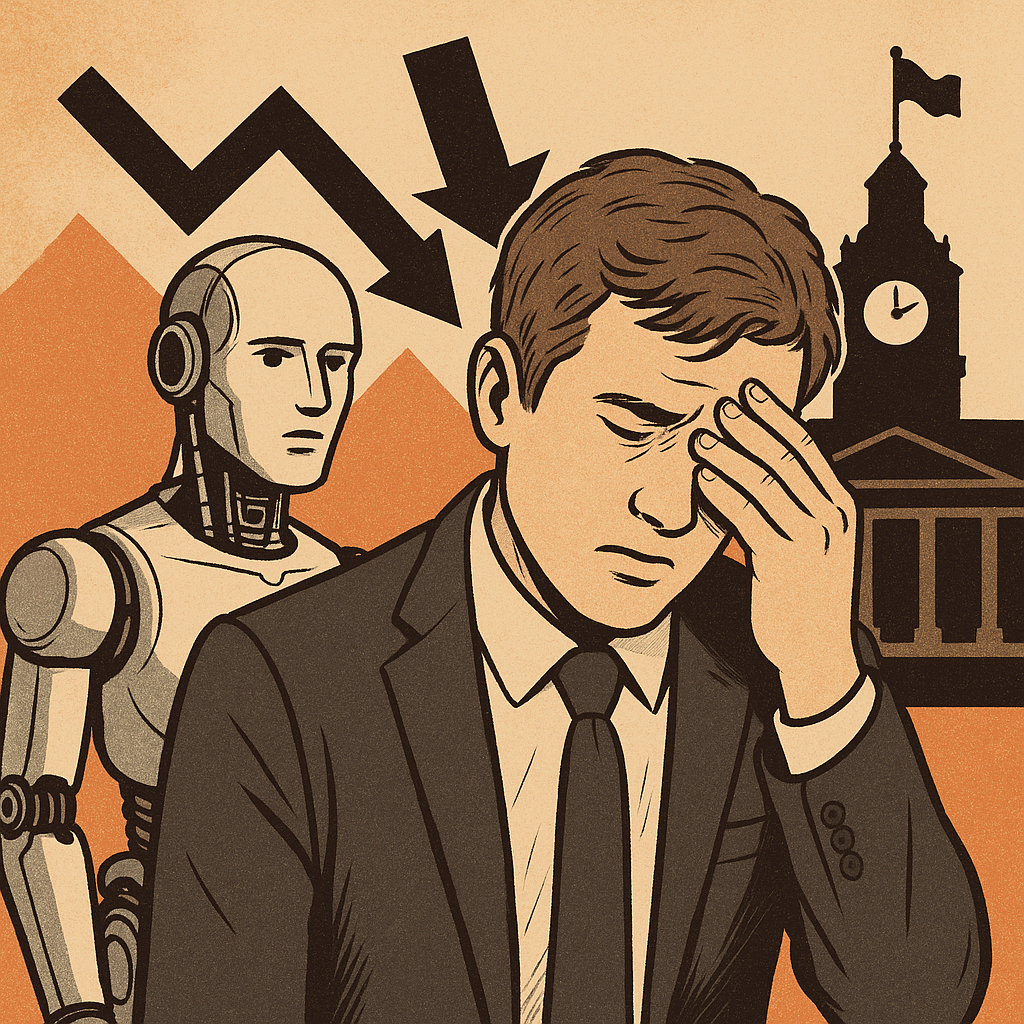Don't Blame ChatGPT for the Jobs Crisis – Look to Policy Instead
The rise of AI is often talked about as being a future job destroyer. Headlines warn that computers will displace humans on a massive scale, and studies have a tendency to identify entire professions subject to the risk of automation.
However, although AI technology like ChatGPT has disrupted some industries, there's a lot more to the real tale of Britain's declining entry-level jobs market.
Namely, if we want to explain why we've got a weak labour market, we should look at government policy, and ironically, specifically the policies of the Labour party.
The shrinking graduate job market...
Figures reveal a depressing drop in opportunities for new graduates....
New graduate jobs in the UK have fallen by a third since just three years ago, and around 630,000 graduates are on benefits, which is bad news for those graduating university this summer.
And where this trend is concerned AI is a convenient scapegoat....
Artificial intelligence may well be transforming the way companies do business and will potentially replace huge numbers of jobs someday. But not yet.
Few companies have come to the point where automating employees with AI is commonplace. Many businesses are still at the experimental stage, trying to work out where these tools sit in their processes. So why is the graduate labour market in such profound trouble already?

The Burden of Policy on Business
The real decline in graducate jobs is that government policy has made it less attractive than ever before for employers to hire new graduates.
The obvious exmaple here is that businesses are now grappling with higher National Insurance contributions, the equivalent of an employment tax. Already stretched by inflation and petrol prices, employers now have additional expenses with every new recruit. With additional layers of bureaucracy and red tape, the overall effect is catastrophic on graduate recruitment.
Final thoughts: tech as the scapegoat...
While AI is in the news, it's something of a scaegoat, it's more likely that government policies are stifling the job market!
The truth is firms see it as too expensive to risk hiring new talent, and with that in mind, they turn to AI instead, it's not AI that is the driver here.